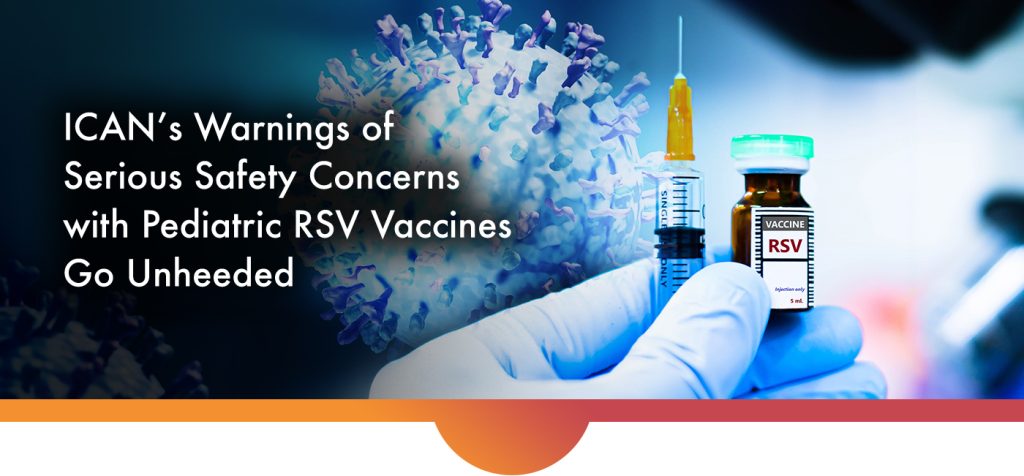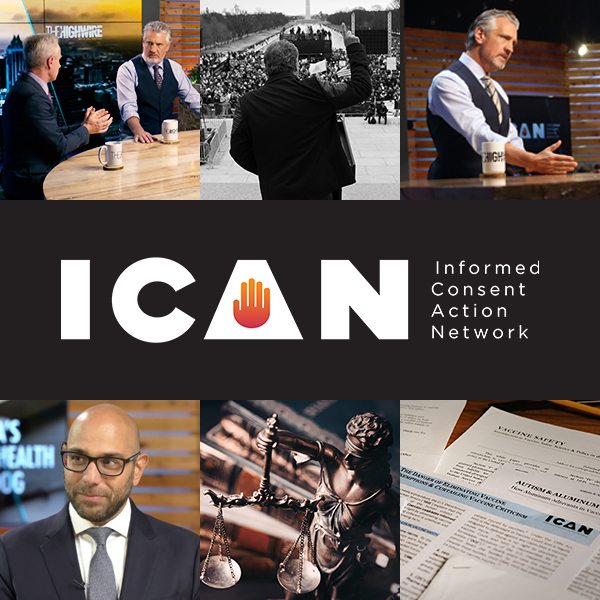

Because of donors like you, we’re able to take bold legal action. Join us in continuing the fight—donate here.
When the FDA’s vaccine committee (VRBPAC) announced it would be discussing Respiratory Syncytial Virus (RSV) vaccines and monoclonal antibodies at its December 2024 meeting, ICAN had its attorneys send letters both before and after the meeting demanding that it address the serious and alarming safety concerns with these products. FDA recklessly ignored these issues and approved Merck’s RSV monoclonal antibody, Enflonsia (clesrovimab), on June 9, 2025.
In the Enflonsia trials, twice as many infants died in the Enflonsia groups compared to the “placebo” groups. Yet, Merck blithely stated that “no deaths were considered related to study intervention by investigator” and that the safety profile was “generally comparable to placebo.” And FDA let Merck just brush it under the rug.
ICAN’s letters also highlighted alarming data about Pfizer’s prenatal RSV vaccine, Abrysvo, which was approved by FDA in August 2023 even though its clinical trial showed the risk of preterm birth (36 weeks or earlier) was higher in the vaccinated group than the control group. Rather than insist Pfizer figure out why it was triggering preterm births, FDA simply restricted the licensed use of the vaccine to women at 32-36 weeks gestation. Apparently, FDA figured that if the vaccine caused the women to go into labor four weeks after taking it, as it had in the trial, the women would be closer to full term and so this would “solve” the premature birth issue.
Given the blatant safety concerns, it is hard to understand why any of these RSV products have been approved. Stay tuned as ICAN intends to push back on FDA’s blatant disregard for the safety and wellbeing of newborns and pregnant mothers.
